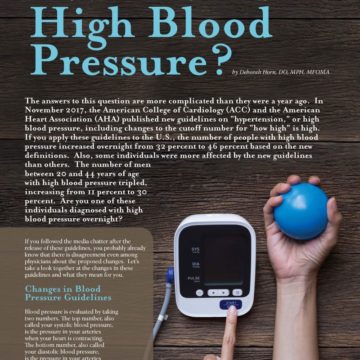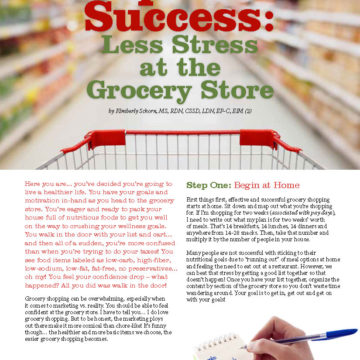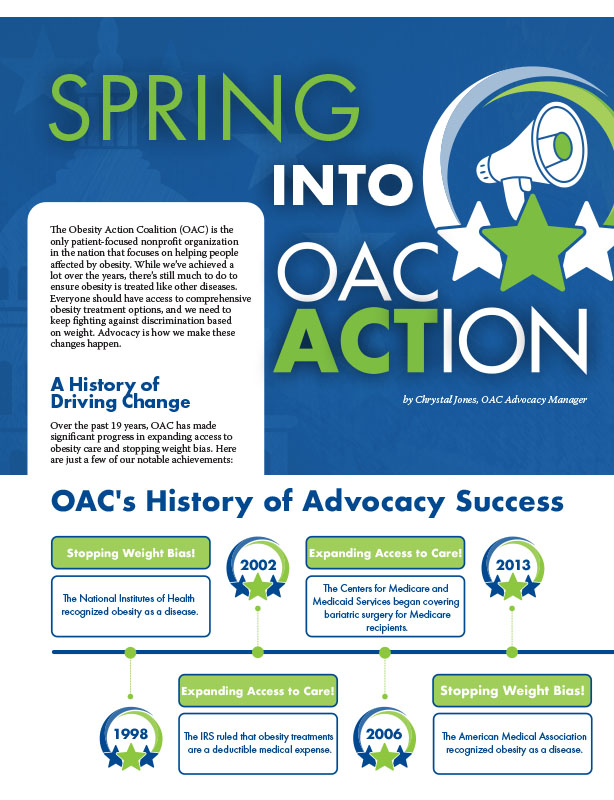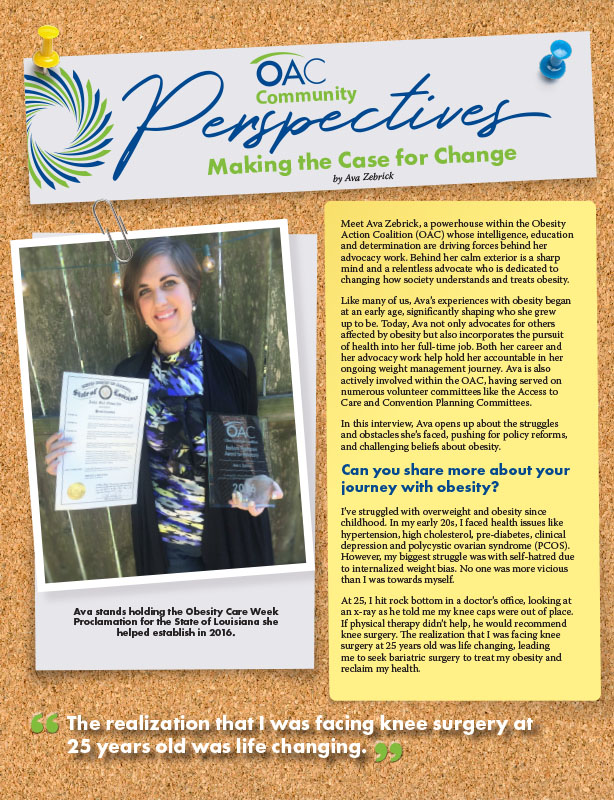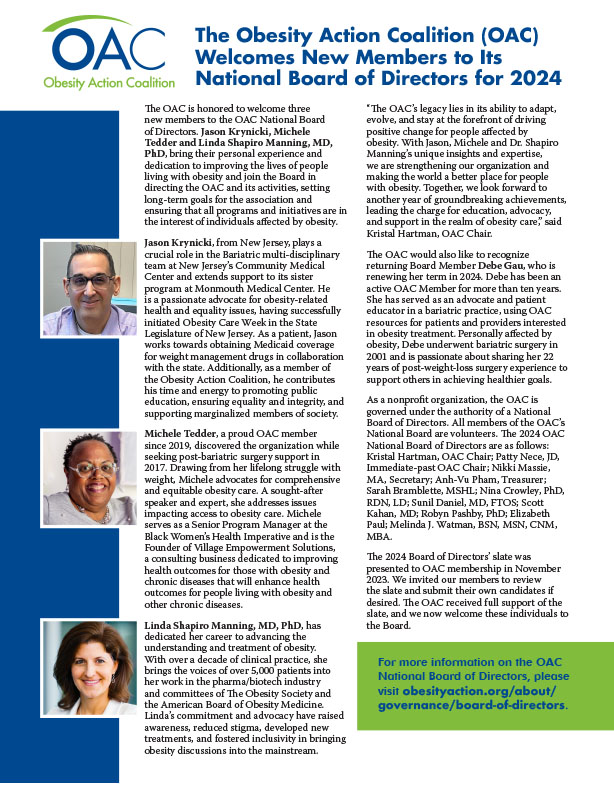Members Matter: Empowering Others through Support and Community

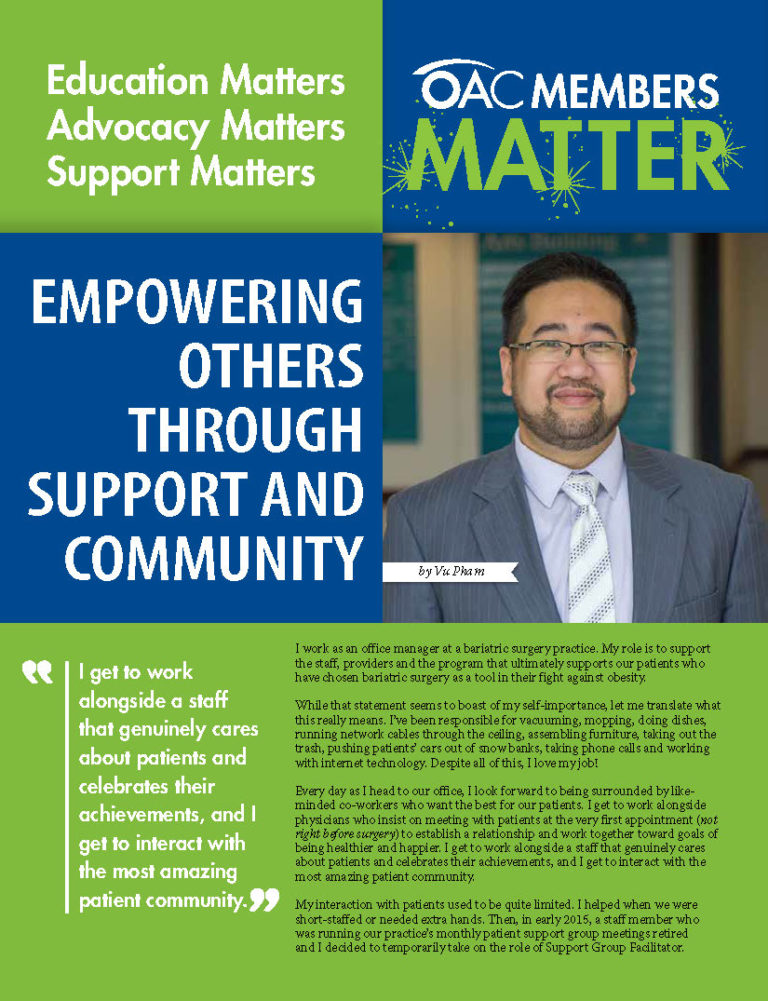
by Vu Pham
Summer 2018
I work as an office manager at a bariatric surgery practice. My role is to support the staff, providers and the program that ultimately supports our patients who have chosen bariatric surgery as a tool in their fight against obesity.
While that statement seems to boast of my self-importance, let me translate what this really means. I’ve been responsible for vacuuming, mopping, doing dishes, running network cables through the ceiling, assembling furniture, taking out the trash, pushing patients’ cars out of snow banks, taking phone calls and working with internet technology. Despite all of this, I love my job!
Every day as I head to our office, I look forward to being surrounded by like-minded co-workers who want the best for our patients. I get to work alongside physicians who insist on meeting with patients at the very first appointment (not right before surgery) to establish a relationship and work together toward goals of being healthier and happier. I get to work alongside a staff that genuinely cares about patients and celebrates their achievements, and I get to interact with the most amazing patient community.
My interaction with patients used to be quite limited. I helped when we were short-staffed or needed extra hands. Then, in early 2015, a staff member who was running our practice’s monthly patient support group meetings retired and I decided to temporarily take on the role of Support Group Facilitator. However, I felt far from qualified to be leading these sessions. I could relate to some of our patients’ experiences, but I had not undergone bariatric surgery myself. Would patients be willing to accept a support group contributor who couldn’t relate to this significant life change?
Despite my fear of being relatable to patients, I found the patient community to be accepting and inviting. Although my personal fight against obesity had not lead to bariatric surgery like it had for my patients, it helped me connect in another way.
My personal experiences with obesity included a childhood of using humor to mask my humility of being the “jolly fat kid.” I secretly tried to cheat my way to physical acceptance using very dangerous methods. I was reminded of how alone I felt sitting in a locked bathroom, thinking those methods would be the only way I could lose weight. I figured I was the only one who could get myself out of this body. Reaching out for help seemed to show weakness and that wasn’t an option. This feeling of self-loathing, disgust and complete isolation was one I never wanted anyone else to feel, and as I spoke with each patient at the support groups, my goal was to make sure no one had to feel alone on this journey.
The strength of those patients inspired me to commit to being a support group facilitator long-term. I earned my Support Group Leader Certification from Bariatric Support Centers International and I was soon able to grow our newly-forming support groups to a highly-performing program!
The next evolution of our support groups came in 2016 when our medical director asked if I had any interest in attending the OAC’s Your Weight Matters National Convention in Washington, DC. Having been very familiar with the incredible work of the OAC, I jumped at the opportunity. It was a blast! I learned so much from the incredible speakers, discovered new ways to stay healthy, connected with others who have always inspired me and became empowered to fight weight bias. I even got to meet other fascinating attendees from across the nation and hear their stories.
After the Convention, I came back home to Buffalo so inspired and empowered to grow our support group even more. I incorporated elements from the conference into our meetings and I spent a year telling everyone how awesome it was! Then, I attended the 2017 conference in New Orleans with 12 of my closest friends and patients. I wasn’t surprised that patients who attended came back empowered to help make changes as well.
We now have a patient volunteer committee that meets to decide on support group meeting topics and community events. Together, we’ve organized walks and other outings. We’ve taken line-dancing classes together. We’ve had patient volunteers do cooking demonstrations. Volunteers routinely come to “new patient” seminars to share their stories and answer questions that only a patient can answer. Patients have organized classes together. We’ve had patient celebrations for others to share their successes on stage in front of hundreds of people, friends and family. We’ve gone to an amusement park to celebrate being able to ride roller coasters again. A patient who, prior to surgery was humiliated for being asked to get off a roller coaster for her safety, was able to come back and ride that same roller coaster seated comfortably next to her surgeon!
Today, our patient support group meets at least three times a month. In the near future, we plan to expand with two additional remote meetings for patients coming from farther away. In 2017, we had 1,627 patients registered for support group meetings – not including family guests and friends that joined with us.
Before the support group meetings start, the room is already alive with energy. Friendships that have formed buzz with conversation and newcomers are invited to join-in. Folks are laying out clothes to donate which no longer fit them and can be helpful to others.
When the meetings start, we ask if anyone has any non-scale victories to share that we can celebrate together. It’s one of my favorite parts of the meetings and we get to hear inspiring milestones that keep us motivated and empowered. In this room, with this patient community, we feel that triumph when we hear it – and we understand that non-scale victory for the success it truly is.
Throughout the meetings, patients bring recipes they’ve tried and offer feedback to the rest of the group. Other patients announce meet-ups for walks in the park or other venues. At the end of the meeting, I remind everyone of an unofficial rule we have: no one leaves the room before they meet someone new, as this is a great way for friendships to form outside of our support groups. Long after I’ve packed up to leave, folks are still hanging out, swapping tips and recipes, sharing advice on a concern, supporting one another and being an incredible patient community!
One of the greatest things I hear about our support groups is that they aren’t what people expected. It isn’t a tired room of the same four patients sharing complaints. Instead, it’s an upbeat, fun and welcoming group of best friends you’ve never met before. It is an empowered patient community that cares for each other, and I believe this has been influenced by my involvement with the OAC.
The members of the OAC continue to inspire me every day. They are fighters – fighting not just for their lives, but for each other and everyone who struggles with weight and/or obesity. This reminds me that the “C” in OAC stands for “Coalition,” and it’s this type of coalition, cooperation and community that will change the world. I’ve already seen them accomplish astounding things, and I know that through our local support group meetings and interactions with the OAC, our patients will be empowered to do even more. I know that not everyone out there is as fortunate as I am to have a local patient community like this, and I hope those who don’t can someday join or even form one modeled after the OAC Community.
Until then, I hope these people realize they are not alone – that they have a nationwide patient community in OAC members. And if they make it out to the OAC’s Annual Your Weight Matters National Convention, they’ll be treated to a support group like no other and meet new friends that contribute to their lives in so many different ways.
by Chrystal Jones, OAC Advocacy Manager Spring 2024 The Obesity Action Coalition (OAC) is the only patient-focused…
Read Articleby Ava Zebrick Spring 2024 Meet Ava Zebrick, a powerhouse within the Obesity Action Coalition (OAC) whose…
Read ArticleThe OAC is honored to welcome three new members to the OAC National Board of Directors. Jason Krynicki,…
Read Article




